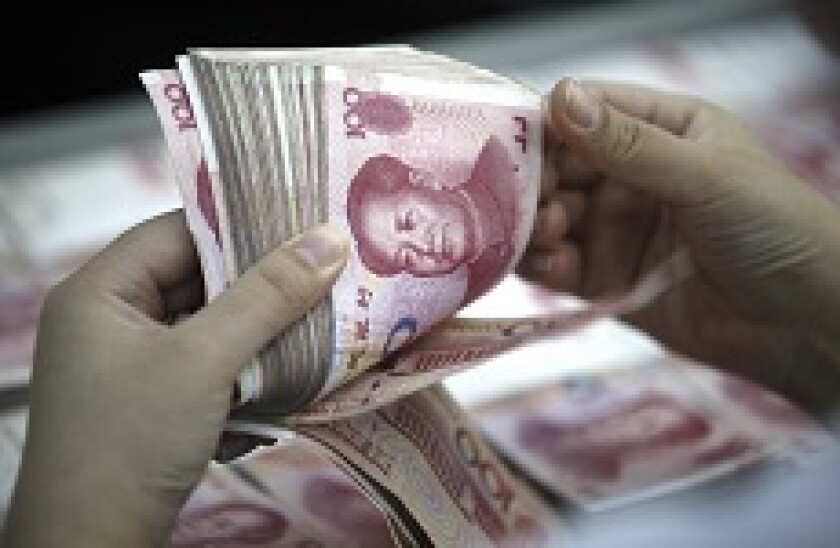The Treasury dedicated long sections of its bi-yearly report on foreign FX management practices to China.
"While China’s exchange rate practices continue to lack transparency, including its intervention in foreign exchange markets and its management of daily central parity settings to influence the value of the RMB, Treasury estimates that direct intervention by the People’s Bank of China (PBoC) this year has been limited," the report said.
However, the recent depreciation of the RMB against the dollar meant the Treasury would "carefully monitor" trends over the next six months.
"Treasury continues to urge China to enhance the transparency of China’s exchange rate and reserve management operations and goals," the report concluded. "Treasury is deeply disappointed that China continues to refrain from disclosing its foreign exchange intervention."
The US’s decision to spare China the label of FX manipulator has not helped the RMB exchange rate, which inched closer to seven per dollar this week.
Unlucky seven
Analysts are divided on what a weakening past that threshold could mean for the renminbi.
"Markets are fixated on 7.00 as an important threshold for $/CNY," wrote Robin Brooks, chief economist at the Institute of International Finance, on October 18. "Against the backdrop of escalating trade tensions, a move above this level is seen as competitive devaluation.”
However, he noted that in the context of the trade war, the recent weakening could be seen as market rather than policy driven.
“In such circumstances, any freely floating currency would depreciate, and the RMB should be no different,” Brooks added. “Moving above 7.00 will simply reflect diverging fundamentals and not competitive devaluation.”
The economist said there is a clear link between tariffs and the progressive devaluation of the RMB. It noted an initial 6% devaluation as a result of the first round of US president Donald Trump's tariffs on $250bn of Chinese goods starting in June. The larger batch, $200bn, was only subjected to a 10% tariff, but should those tariff levels be hiked to 25%, the IIF said it expects another 6% devaluation in the RMB exchange rate.
That would put the RMB at 7.35 against the dollar, based on current trading levels.
The offshore RMB was trading flat from the open at 6.9395, as was the onshore RMB, at 6.9339, as of 3.30pm Hong Kong time on October 19, according to Bloomberg data.
"[This is] a move any freely floating exchange rate will do and one that is neither retaliatory nor does it constitute a competitive devaluation," Brooks added.
Secondary weapons
A more subtle front of the trade war is the Chinese sovereign holdings of dollar sovereign bills. China dumped more treasuries in August, according to data released this week. Holdings fell to $1.165tr, down $7bn from a month earlier and $36bn from a year ago.
US residents, meanwhile, held $172.1bn of long-term Chinese securities as of July, according to Treasury data. Nearly the whole amount, or 97%, was held in Chinese stocks, according to the data.
Trump and China’s Xi Jinping are set to meet no earlier than the G20 meeting in late November, which means any further high-level discussions are unlikely to take place before the conclusions of the US mid-term elections on November 6.
“On balance, all factors considered, the two sides are more likely to strike a deal than not," Kevin Rudd, former Australian prime minister and president of the Asia Society Policy Institute, said in a speech this week. "But the prospects of it being derailed by both policy and political considerations are real. Just as the prospects of a deal being subsequently derailed during the negotiation and implementation process of any agreement are real as well.”

